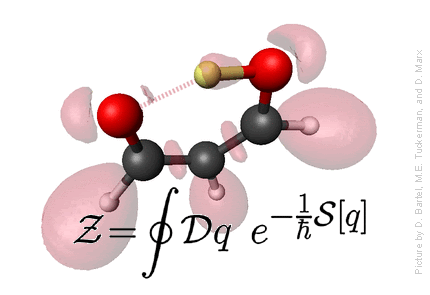Search This Blog
Tuesday, 29 January 2013
Why Are Humans Made Of Carbon? Chemist Points To Electrons, Molecular Bonds
Everything on earth is made up of combinations of different elements –
all of which can be found on the periodic table. Considering that the
periodic table contains 118 elements it seems a pity that organic life
tends to feature only five or six of those elements in any vast
quantities. The main one being carbon.
As well as being the main element in organic matter, carbon atoms are
the only element in both graphite and diamond.
It would be impossible for life on earth to exist without carbon. Carbon
is the main component of sugars, proteins, fats, DNA, muscle tissue,
pretty much everything in your body. The reason carbon is so special is
down to the electron configuration of the individual atoms. Electrons
exist in concentric ‘shells’ around the central nucleus and carbon has
four electrons in its outermost shell. As the most stable thing for an
atom to have is eight electrons, this means that each carbon can form
four bonds with surrounding atoms.
Credit: http://www.huffingtonpost.com
Monday, 28 January 2013
Chemistry of Cooking
WHAT ARE ACIDS AND BASES? An acid is defined as a solution with more positive hydrogen ions than negative hydroxyl ions, which are made of one atom of oxygen and one of hydrogen. Acidity and basicity are measured on a scale called the pH scale. The value of freshly distilled water is seven, which indicates a neutral solution. A value of less than seven indicates an acid, and a value of more than seven indicates a base. Common acids include lemon juice and coffee, while common bases include ammonia and bleach.
WHY DOES FOOD SPOIL? Processing and improper storage practices can expose food items to heat or oxygen, which causes deterioration. In ancient times, salt was used to cure meats and fish to preserve them longer, while sugar was added to fruits to prevent spoilage. Certain herbs, spices and vinegar can also be used as preservatives, along with anti-oxidants, most notably Vitamins C and E. In processed foods, certain FDA-approved chemical additives also help extend shelf life.
This report has been produced thanks to a generous grant from the Camille and Henry Dreyfus Foundation, Inc.
Reported January 2009
Saturday, 26 January 2013
Thursday, 24 January 2013
Blog's Highlight
Wednesday, 23 January 2013
Statistical Mechanics
Defining statistical mechanics: Statistical Mechanics provies the connection
between microscopic motion of individual atoms of matter and
macroscopically observable properties such as temperature, pressure,
entropy, free energy,
heat capacity, chemical potential, viscosity, spectra, reaction rates, etc.
- Statistical Mechanics provides the microscopic basis for thermodynamics, which, otherwise, is just a phenomenological theory.
- Microscopic basis allows calculation of a wide variety of properties not dealt with in thermodynamics, such as structural properties, using distribution functions, and dynamical properties - spectra, rate constants, etc., using time correlation functions.
- Because a statistical mechanical formulation of a problem begins with a detailed microscopic description, microscopic trajectories can, in principle and in practice, be generated providing a window into the microscopic world. This window often provides a means of connecting certain macroscopic properties with particular modes of motion in the complex dance of the individual atoms that compose a system, and this, in turn, allows for interpretation of experimental data and an elucidation of the mechanisms of energy and mass transfer in a system.
For more details and lecture notes click here.

Credit: Professor M. Tuckerman
New 2-D Material for Next Generation High-Speed Electronics
Scientists at CSIRO and RMIT University have produced a new
two-dimensional material that could revolutionise the electronics
market, making “nano” more than just a marketing term.
The material – made up of layers of crystal known as molybdenum
oxides – has unique properties that encourage the free flow of electrons
at ultra-high speeds.
In a paper published in the January issue of materials science journal Advanced Materials, the researchers explain how they adapted a revolutionary material known as graphene to create a new conductive nano-material. For more details click here.
 |
| Artist impression of high carrier mobility through layered molybdenum oxide crystal lattice. (Credit: Dr Daniel J White, ScienceFX) |
Credit: Dr Daniel J White, http://www.csiro.au
Subscribe to:
Posts (Atom)
- Do not get over excited over happiness and do not get over depressed over sorrow.
- Do not get over bonded with anyone and anybody because it can lead to problems and sorrow.
- Never think that my duty is the topmost or lowermost. Every duty is respectful. The responsibility undertaken or given as per the position is the noblest duty.
- Elevate yourselves, family, society and nation and never denigrate yourselves, family, society and nation.
- We are our own closest relatives and if not properly utilised we will become our closest enemies.
- There are possibilities of success and failure in any endeavour. One cannot assure success always.
- Death is inevitable for everyone in this world. In any endeavour at the maximum an individual may die.
- People may say good and also they may say bad. Approach them with stabilised mind.
- Take anything after scientifically, logically and rationally analysing them.
- Perform your duty, responsibility and accept the privileges eligible for you.
- First change ourselves and then try to change others.
- We are all instruments /tools in the hands of the nature for performing the duty. So do not think that I am doing the duty. Think that I am an instrument to do the duty.
- Results of action may not be sweet always. Accept what ever may be the result.
- Follow the path of great scholars who guided the world. Listen their messages.
- Results and rewards will come and go but stick to your duty with devotion, dedication and sincerity.





